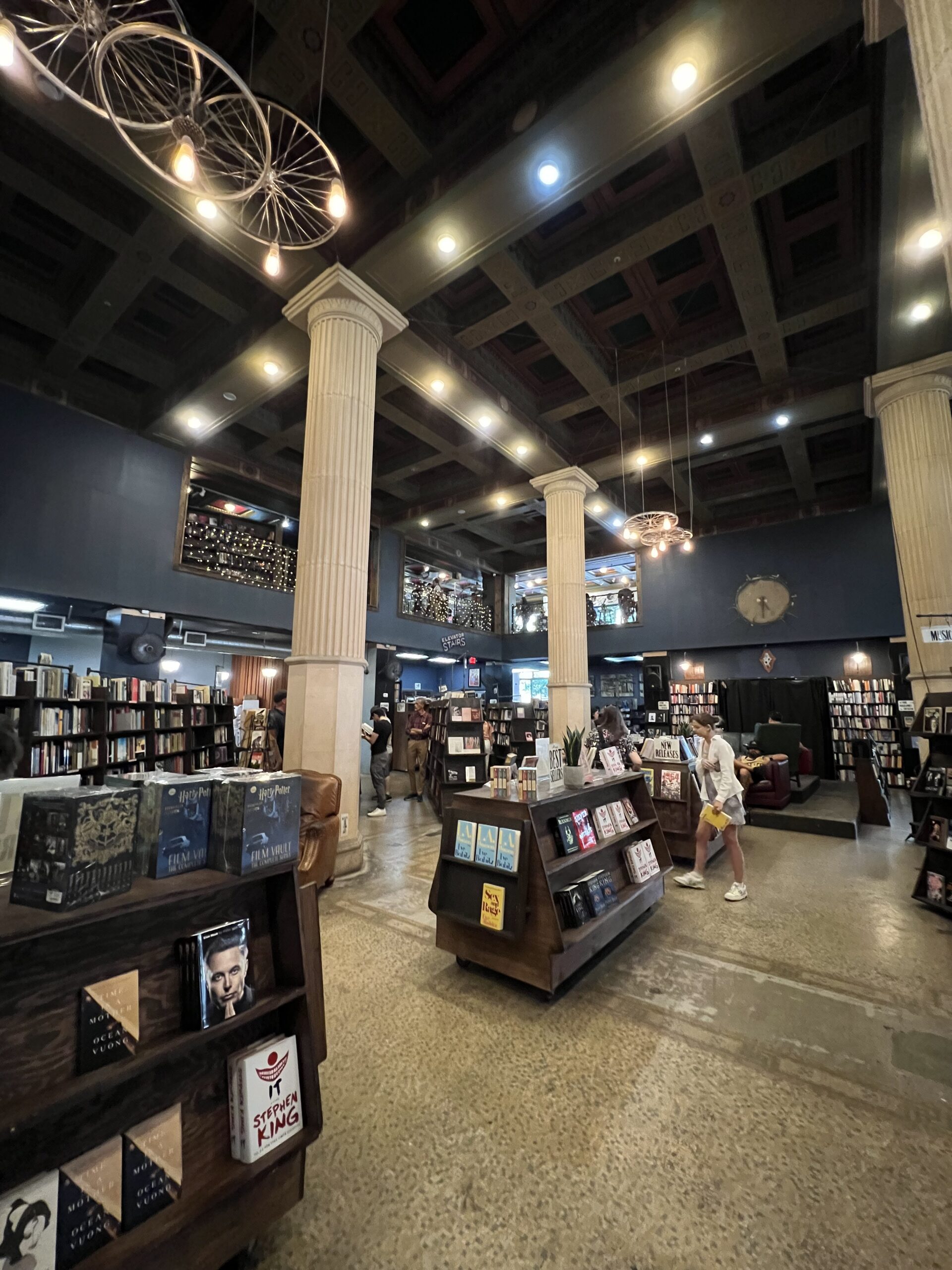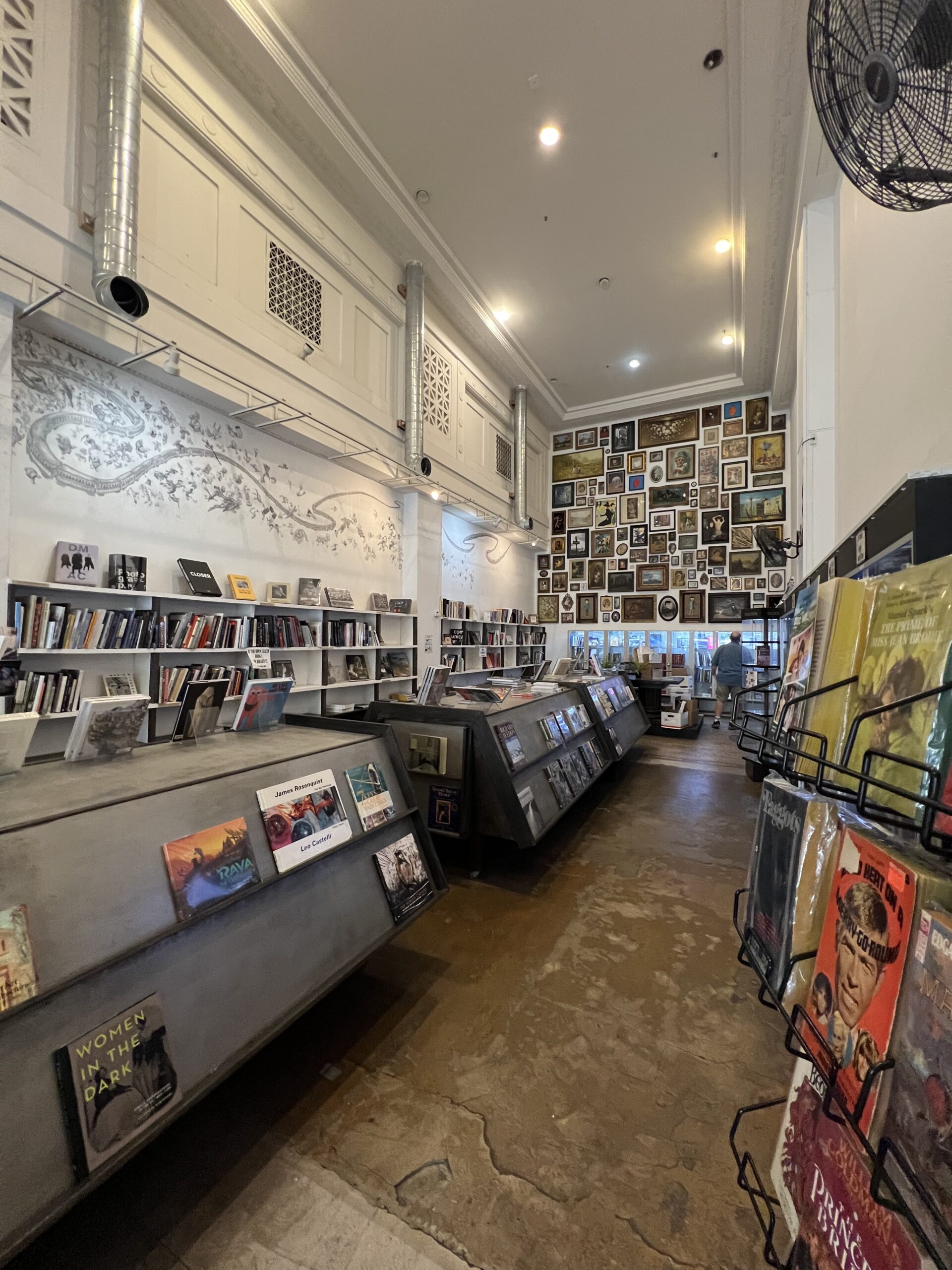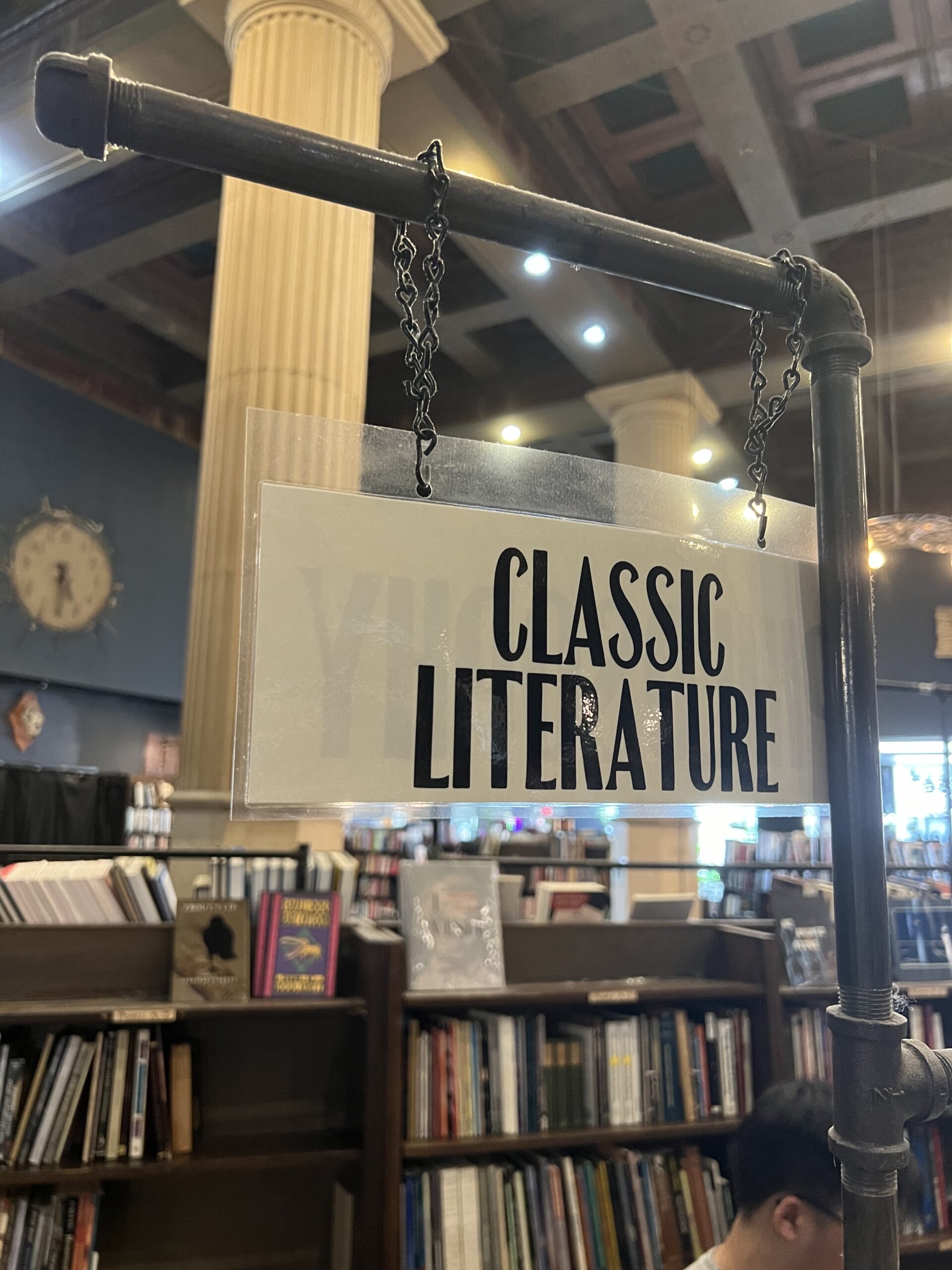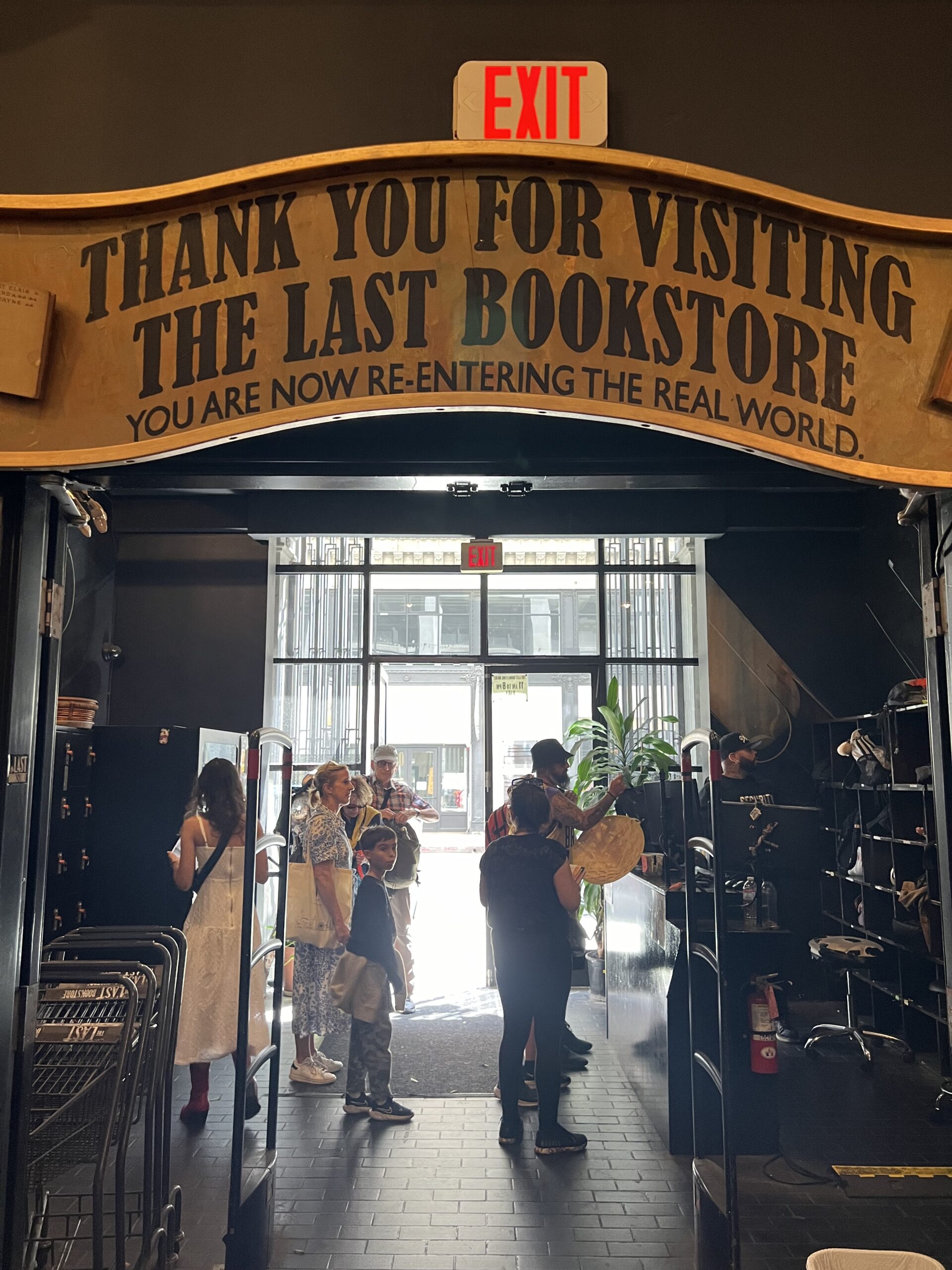It is not easy to be simple, especially nowadays when the excess of information makes decision-making difficult. Companies find themselves pressured to seek innovative, technological, and disruptive solutions to remain profitable and attract consumers. Retail is no different. Every day, we see new things while witnessing the bankruptcy of various brands. What’s the secret? Is there a silver bullet to staying alive as a business?
I believe the answer lies in simplicity. From my point of view, this virtue is related to humility, empathy, and effectiveness. Humility to sharpen perception, empathy to identify needs, and effectiveness to deliver positive results with pragmatism. In this perspective, the means to achieve simplicity can be diverse, ranging from analog to artificial intelligence.
Right in the heart of Los Angeles, I found a great example of simple execution with great success: The Last Bookstore, California’s largest new and used book and record store. Its history and fame are not comparable to the giants Barnes & Noble and Waterstones or the touristy Lello and Acqua Alta. However, what I saw in this bookstore, founded in 2005 and occupying a peculiar space in a century-old building that used to house a bank, is an example of authenticity and pragmatism.
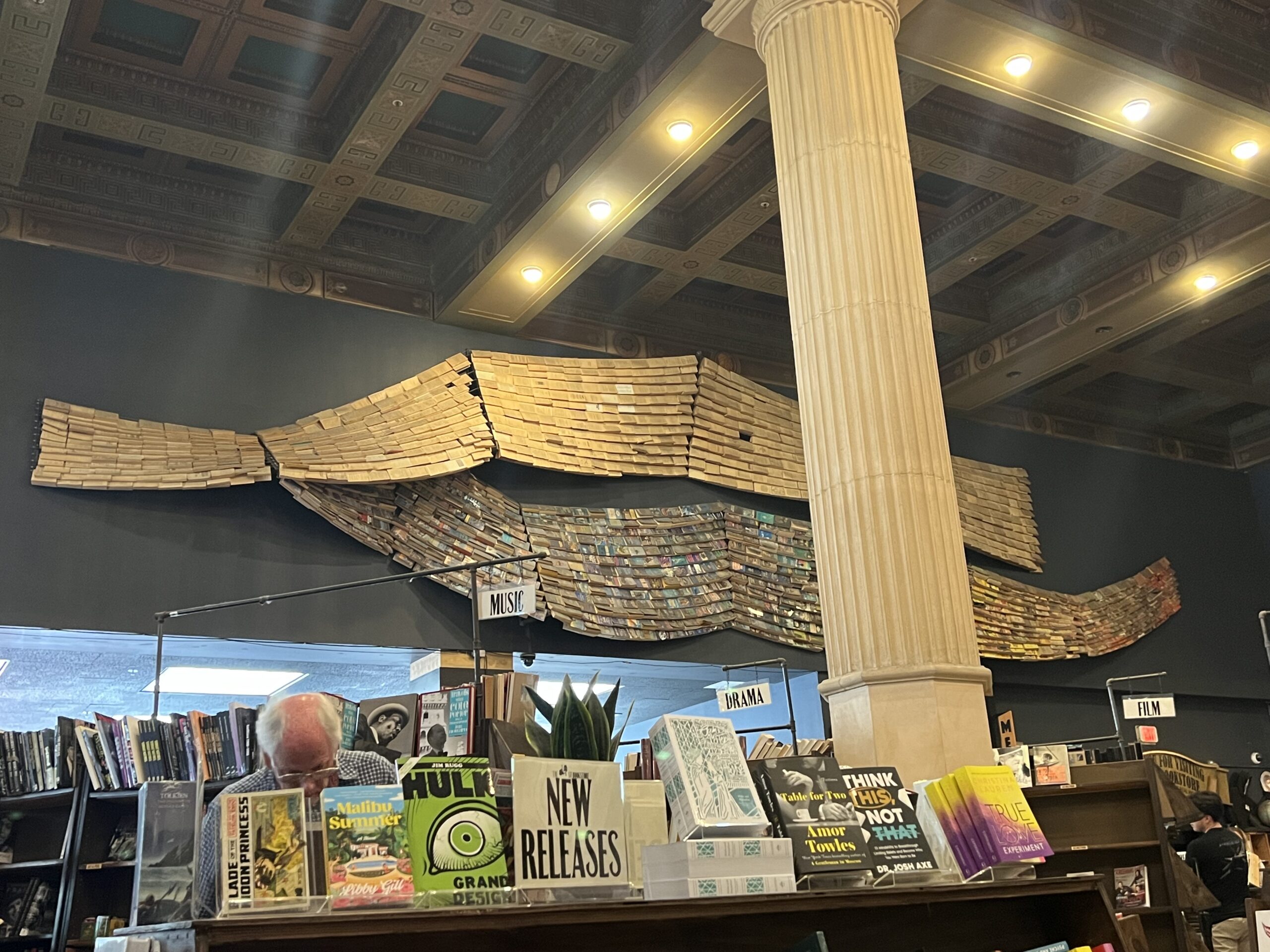
What’s the twist?
Nothing is refined, nothing is technological, nothing is forced. But everything a book and culture enthusiast wants is there. This connection with the public is the secret of simplicity. Throughout the space of over 2,000 square meters and 250,000 titles, there is a record store, a comic bookstore, 5 art studios, and a small café. Armchairs (not chairs) are in good quantity and well distributed across the 3 floors of the store. Shelves are well-signposted, and there is an information desk, as well as a team always circulating to assist visitors.
The furniture, communication, and visual merchandising are simple. Untreated wood, certainly second-hand. The armchairs I mentioned are quite old, worn, and visibly patched. The signage is Cartesian. The language of communication is frank and direct. Even so, the space manages to be welcoming. People are at ease, circulating, reading, taking photos, sitting comfortably, and most importantly, buying. The environment is authentic, focusing on the product and not on distractions that add nothing. Unlike many more sophisticated bookstores, for example, you don’t see readers kneeling or sitting on the floor because there are seats for everyone. Simple, right?
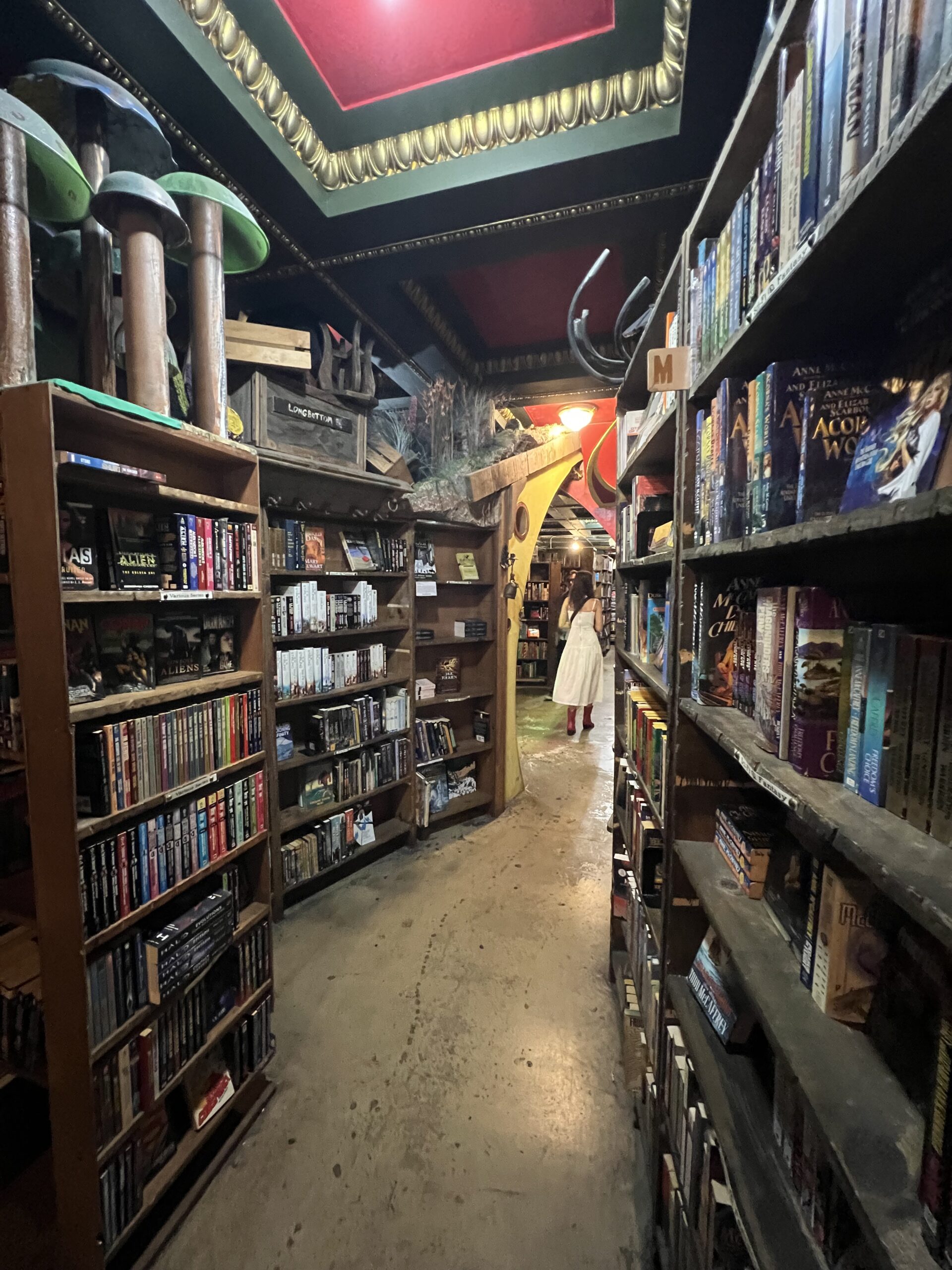
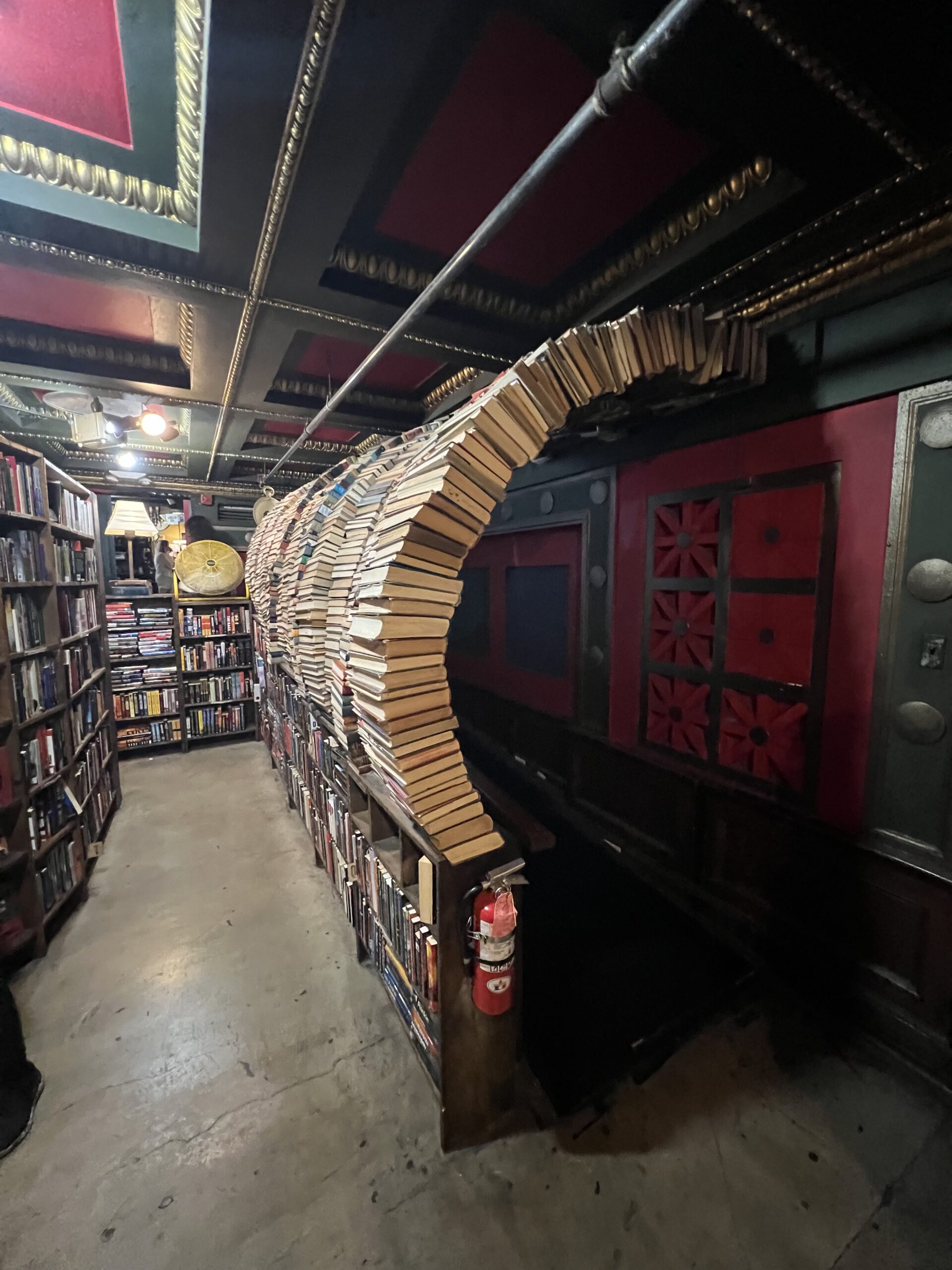
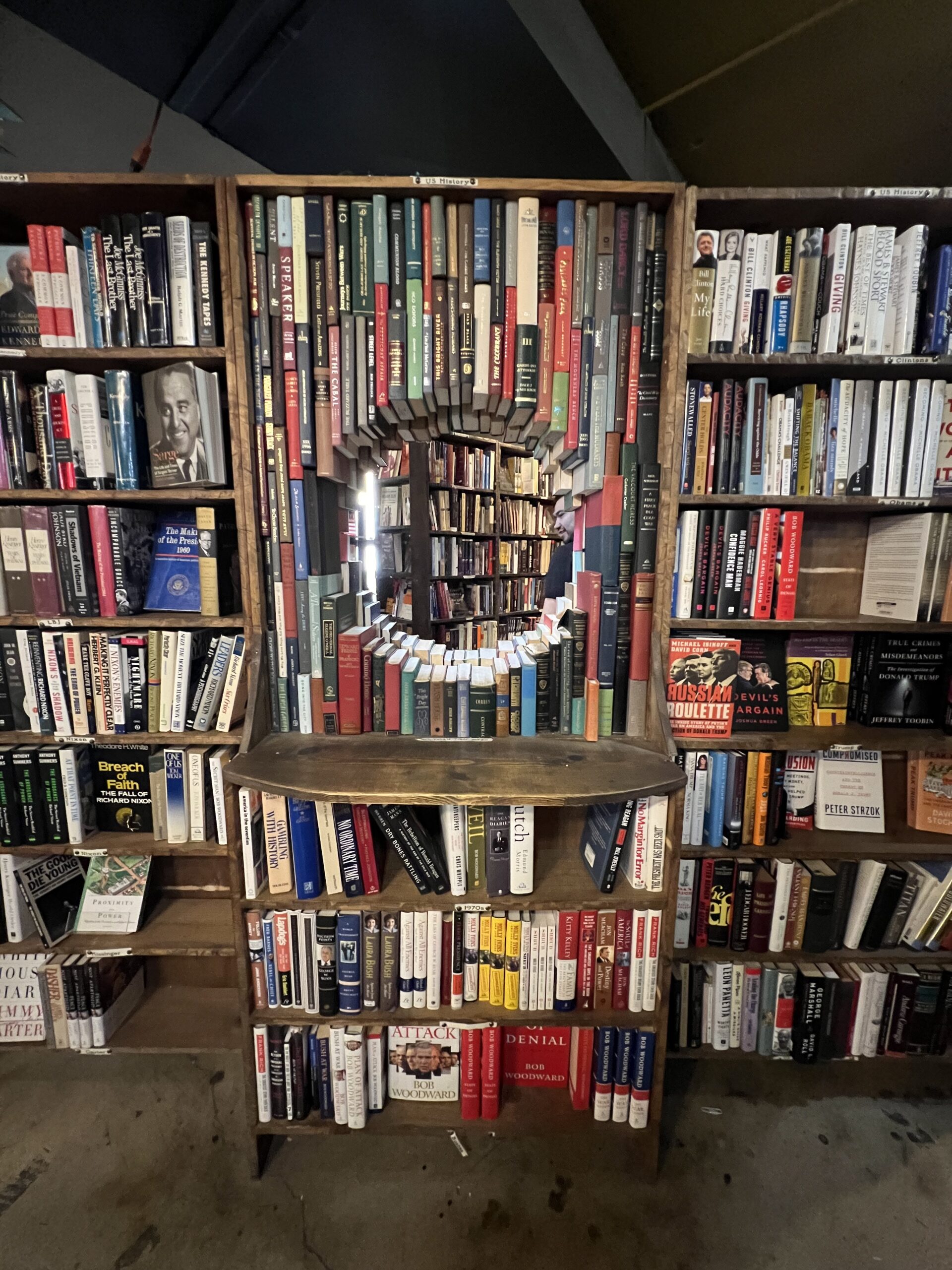
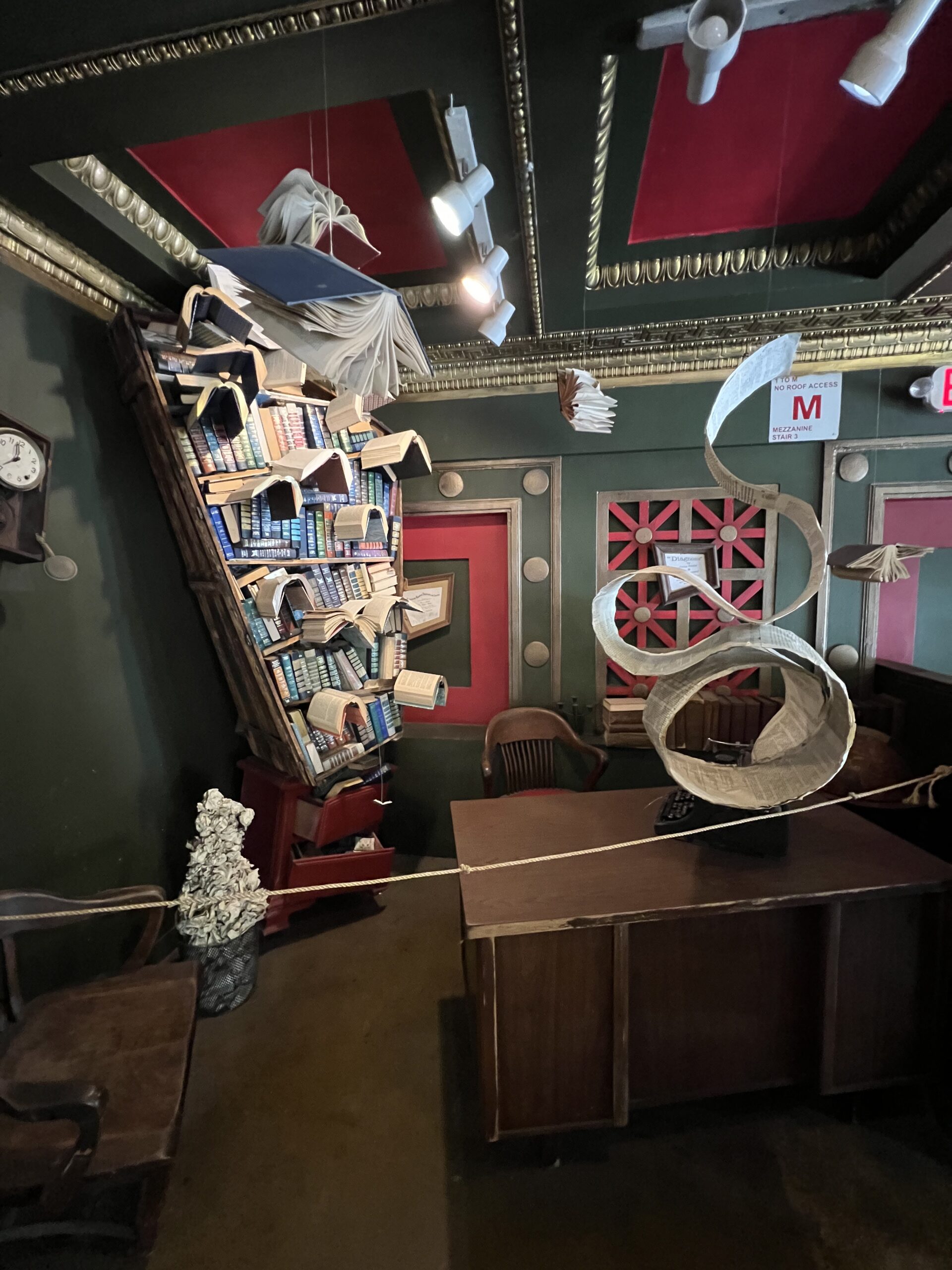
Another factor that makes this bookstore a lesson in experience is the microzones in various environments. Whether it’s a tunnel, a window of books, or a room inside a vault, the store is an invitation to discovery and enchantment with a good dose of eccentricity. And it works for all ages. While children have fun in the book labyrinths, adults can search for used classics or new releases.
The curious thing is that contrary to most reputable bookstores, the founder of The Last Bookstore is not a bookseller. Josh Spencer was a salesman, in essence, selling everything from cars to clothes online. One fine day, he decided to focus on his first love: books. And he’s doing very well.
James Daunt, CEO of Barnes & Noble and Waterstones, a bookseller with over 30 years of experience, is making major changes in these companies to bring back positive numbers. This segment has been suffering a lot since the advent of amazon.com and e-books. Publicly, he has already stated that his strategy is to treat each store in the chains as an independent bookstore. Why? Certainly, to get rid of the institutional weight and the shackles of the head offices and get closer to the most important people: the readers.
Even without experience in the field, being a good salesman, Josh Spencer understood from the beginning that a true connection with the public is the essence of any business.
Relevance with simplicity is always a good formula.
Today, The Last Bookstore is considered one of the largest independent bookstores in the world still in operation. The name is pure irony, a mix of joke and provocation. It challenges the status quo of the big industry, aggressive prices, business at any cost, and the value of shares on the stock market. And it does this with simplicity, the only weapon, I would say, capable of combating the widespread incompetence we often see in brands that claim to be big. What a twist.
